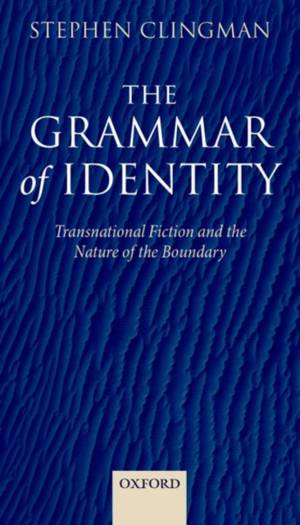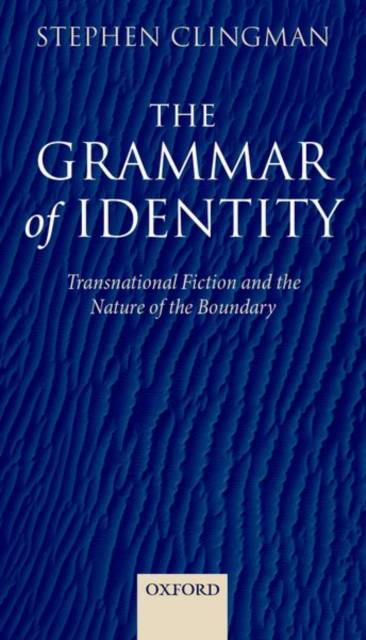
- Afhalen na 1 uur in een winkel met voorraad
- Gratis thuislevering in België vanaf € 30
- Ruim aanbod met 7 miljoen producten
- Afhalen na 1 uur in een winkel met voorraad
- Gratis thuislevering in België vanaf € 30
- Ruim aanbod met 7 miljoen producten
Zoeken
The Grammar of Identity
Transnational Fiction and the Nature of the Boundary
Stephen Clingman
Paperback | Engels
€ 71,95
+ 143 punten
Uitvoering
Omschrijving
In our current world, questions of the transnational, location, land, and identity confront us with a particular insistence. The Grammar of Identity is a lively and wide-ranging study of twentieth-century fiction that examines how writers across nearly a hundred years have confronted these issues. Circumventing the divisions of conventional categories, the book examines writers from both the colonial and postcolonial, the modern and postmodern eras, putting together writers who might not normally inhabit the same critical space: Joseph Conrad, Caryl Phillips, Salman Rushdie, Charlotte Bronte, Jean Rhys, Anne Michaels, W. G. Sebald, Nadine Gordimer, and J. M. Coetzee. In this guise, the book itself becomes a journey of discovery, exploring the transnational not so much as a literal crossing of boundaries but as a way of being and seeing. In fictional terms this also means that it concerns a set of related forms: ways of approaching time and space; constructions of the self by way
of combination and constellation; versions of navigation that at once have to do with the foundations of language as well as our pathways through the world. From Conrad's waterways of the earth, to Sebald's endless horizons of connection and accountability, to Gordimer's and Coetzee's meditations on the key sites of village, Empire, and desert, the book recovers the centrality of fiction to our understanding of the world. At the heart of it all is the grammar of identity, how we assemble and undertake our versions of self at the core of our forms of being and seeing.
of combination and constellation; versions of navigation that at once have to do with the foundations of language as well as our pathways through the world. From Conrad's waterways of the earth, to Sebald's endless horizons of connection and accountability, to Gordimer's and Coetzee's meditations on the key sites of village, Empire, and desert, the book recovers the centrality of fiction to our understanding of the world. At the heart of it all is the grammar of identity, how we assemble and undertake our versions of self at the core of our forms of being and seeing.
Specificaties
Betrokkenen
- Auteur(s):
- Uitgeverij:
Inhoud
- Aantal bladzijden:
- 282
- Taal:
- Engels
Eigenschappen
- Productcode (EAN):
- 9780199653812
- Verschijningsdatum:
- 1/01/2013
- Uitvoering:
- Paperback
- Formaat:
- Trade paperback (VS)
- Afmetingen:
- 213 mm x 140 mm
- Gewicht:
- 388 g

Alleen bij Standaard Boekhandel
+ 143 punten op je klantenkaart van Standaard Boekhandel
Beoordelingen
We publiceren alleen reviews die voldoen aan de voorwaarden voor reviews. Bekijk onze voorwaarden voor reviews.











